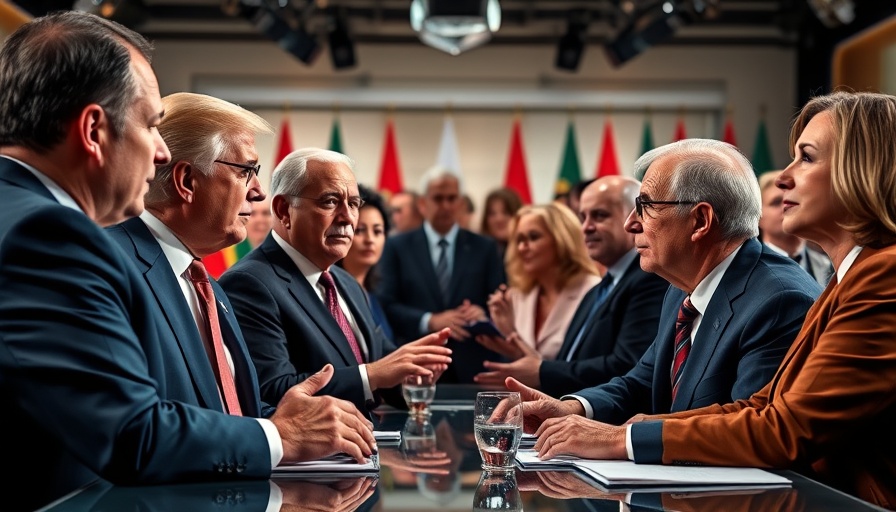
Assessing the Impacts of Trump's Recent Peace Efforts in the Middle East
In recent discussions surrounding Donald Trump's ambitious peace deal involving Gaza and Israel, there's a palpable mix of skepticism and cautious hope. The deal has indeed led to a cessation of hostilities, with families being reunited and some degree of calm restored. However, the reality on the ground suggests that a mere pause in violence does not equate to lasting peace. With no robust international framework or effective governance in place for the Palestinians, how much has truly been achieved?
In 'Can Trump's Peace Deal Actually Work?', a detailed examination of the ongoing efforts highlights the complexity of establishing lasting peace in tumultuous regions, prompting us to dive deeper into its implications.
The Illusion of Peace and the Road Ahead
While the cessation of violence marks a critical milestone, many analysts urge caution. The air of triumph portrayed during Trump’s visit starkly contrasts with the situation in Gaza, where the devastation is enormous, with homes reduced to rubble and no sustainable plan for recovery.
The critical next steps—governance, security, and economic revitalization—are shrouded in uncertainty. Historically, regions emerging from conflict have struggled when these elements are not adequately addressed. Trump’s approach of leveraging American power aggressively might yield short-term results, but as past experiences suggest, it lacks the necessary groundwork to foster enduring peace.
Global Sentiments on U.S. Foreign Policy
American foreign policy, particularly under Trump's leadership, diverges from traditional diplomatic protocols, raising important questions: How does Trump’s seemingly reckless methodology affect international perceptions of U.S. authority? There seems to be a fear among global leaders regarding his unpredictability. This fear, however, does open doors to negotiations, albeit precariously.
The overwhelming focus on Trump, as seen during his high-profile visits to the Knesset and meetings with Middle Eastern leaders, reveals a deeply complex narrative: while he garners attention through his boldness, he simultaneously upends established norms.
Implications for Everyday Citizens
For the average UK family watching these developments, the implications may not be immediately clear, but the link between international peace and domestic costs—be it through economic sanctions, military spending, or humanitarian aid—affects everyone. Families already facing rising living costs must consider how global politics can ripple into their lives.
In the context of budget-conscious living, understanding the broader economic implications of U.S. foreign policy becomes crucial. As humanitarian needs grow in conflict zones, the question arises: will Western governments prioritize aid, and how will such decisions impact charity and development funding worldwide?
Conclusion: A Call for Pragmatism and Awareness
As we reflect on Trump's peace plans, let’s not lose sight of the fact that while immediate successes deserve recognition, the long-term needs of the region are paramount. The narrative created around these peace efforts should not blind us to the absence of a coherent strategy towards sustainable governance and economic recovery for the Palestinians. For UK residents, staying informed not just on the news but its implications will enable better financial planning and community action. In uncertain times, knowledge is indeed power.
 Add Row
Add Row  Add
Add 




Write A Comment